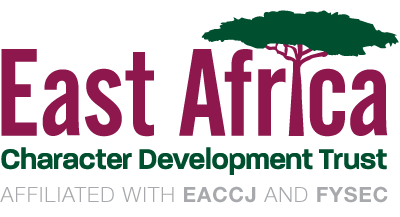HOW DONATED FUNDS ARE SECURED AND MANAGED
The Trustees of the EACDT have established a Management Accounting system to ensure that every penny donated goes directly to helping the children of East Africa.
All donated funds are paid into, or transferred directly by donors to, a bank account maintained with Barclays Bank in the UK (as, at present, donations are only raised outside East Africa) in the name of the Foundation. The Foundation maintains bank accounts with Barclays UK in Pounds Sterling and in US Dollars. Payments are made from the Barclays UK accounts on the basis of two signatures on each cheque or on the authority of a volunteer administrator. Before authorising any transfers, the volunteer administrator seeks the approval of either the Executive Trustee, or one of the other trustees. This particularly applies to transfers to the Pound Sterling bank account maintained in Nairobi, Kenya.
In Kenya, where EACDT’s charitable activities are carried out, two bank accounts are maintained with Barclays Bank of Kenya Limited, one in Pounds Sterling and one in Kenyan Shillings. These accounts are in the name of a Kenya charitable trust, The Foundation for Youth Cricket and Education in Kenya (FYCEK) that EACDT set up to give it a legal presence in Kenya. This gives EACDT the ability to set up contracts of employment with its coaches and administrators, procure locally and comply with Kenyan employment laws.
FYCEK has a Board of Trustees. Mr Julian Ince, a Trustee of EACDT, monitors the transactions that FYCEK enters into through regular reviews of spending. Mr Ince, a retired former partner in PricewaterhouseCoopers and a UK Chartered Accountant, is resident in Kenya. When FYCEK is in need of funds, its Kenya resident Programme Director, Mr David Waters MBE, sends a request to the volunteer administrator, usually for an amount of £10,000 (FYCEK’s monthly expenditure, mainly on coaches’ salaries, is around £3,500 and transfers of this amount reduce bank transfer costs and administration time). The volunteer administrator then seeks approval from an EACDT Trustee and authorises the transfer. Mr Waters then makes transfers from FYCEK’s Sterling bank account to its Kenya Shilling bank account at a rate of exchange he negotiates with Barclays Kenya treasury department. No other payments are made from this bank account. For payments from the FYCEK Shilling account, two signatories are required on any cheque (no direct transfers are made from this account); the signatories are FYCEK’s trustees and Mr Waters. For a cheque to be drawn, a cheque requisition is first prepared by FYCEK’s Kenyan administrator on a pre-printed form. This requisition gives the name of the payee, the reason for the payment and has supporting third party documentation attached. This is then authorised by Mr Waters (or by Mr Ince if the payment is to Mr Waters for reimbursement of bona fide expenses). The Administrator then draws up the cheque and it is signed and given to the payee.
A petty cash float is maintained (at the equivalent of £65/US$ 100) on the imprest system for incidental expenditure. Expenditure is recorded on petty cash vouchers, third party documentation is attached and the payment approved by Mr Waters. When the petty cash float needs reimbursement, the Administrator prepares a list of payments that have been approved and made and presents it to Mr Waters for approval as in the cheque requisition process set out above.
The Administrator prepares a monthly summary in a prescribed format of all receipts and payments into and out of FYCEK’s bank accounts and petty cash float for Mr Ince’s and Mr Waters’ review. This summary is then combined with receipts and payments recorded in EACDT’s UK bank accounts to provide a summary, again in a prescribed format, of the combined EACDT/FYCEK receipts and payments, together with comparative budgeted amounts. These are then reviewed at EACDT’s quarterly trustee meetings. 31 March is the financial year end of both EACDT and FYCEK. FYCEK’s receipts and payments for the year together with some explanatory notes are then independently audited in Kenya. These audited accounts are then aggregated with EACDT’s receipts and payments and a combined set of receipts and payments account and supporting explanatory notes are prepared and submitted to EACDT’s independent examiner together with any supporting records he requests. After making any appropriate adjustments, he then files EACDT’s annual receipts and payments account and explanatory notes with the UK’s Charity Commission. To download the latest Accounts, please click here.
Trustees:
- Chairman – Chris Newson, former Director of Standard Bank in Africa
- Emily Burness, EMEA SAGE Implementation at Cochlear
- David Hardisty, Managing Executive of Retail & Business Banking, ABSA Bank of Kenya
- Julian Ince, former senior partner of PwC Africa and former trustee of GALVmed
- Roger Johnson, former Programme Manager of Hewlett Packard and Senior Programme Officer of the United Nations
- Naval Sood, former Executive Vice President of Stanbic Bank in Nairobi
- Galib Virani, CEO of SuperCosmetics in Nairobi and Founder of First Africa Energy Technology Services
- Denis Awori, former Ambassador for Kenya in Japan and current Chair of Toyota, Kenya
Every trustee is additionally steeped in sport and has a strong cricketing background.
Registered Office:
East Africa Cricket & Educational Foundation
c/o 24 Eastwick Crescent
Rickmansworth
Hertfordshire
WD3 8YJ
Registered Charity Number 1153030
Independent Examiner:
Ms. Margaret Swinson, GMBC LLP
Marine House
151 Western Road
Haywards Heath
West Sussex
RH16 3LH
Bankers:
Barclays Bank PLC
43 High Street
Sutton
Surrey SM1 1DR
Legal Advisors:
Berwin Leighton Paisner LLP
Adelaide House
London Bridge
London EC4R 9HA
